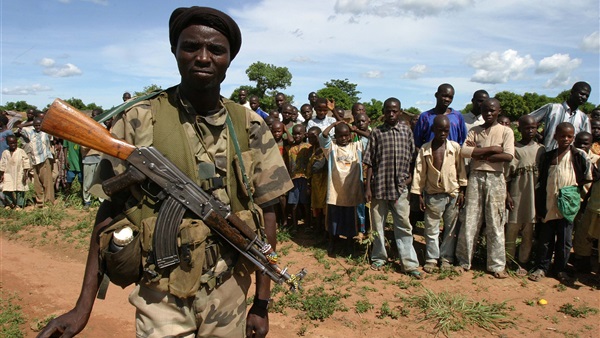By Ahmed Adel
African nations such as Mali, Guinea, Burkina Faso, Chad, Sudan, Niger, and Gabon have witnessed a series of military coups over the past three years, resulting in the ousting of democratically elected presidents and tarnishing the reputation of longstanding ruling dynasties.
This report examines the threat of potential coups in countries led by long-serving leaders, the preemptive measures taken by some nations to avoid such scenarios, and the evolving security landscape in the region.
Challenges to Long-serving Leaders:
Some long-serving leaders in African nations face a coup threat if their generals exploit popular discontent over their extended rule. Notable leaders at risk include Denis Sassou Nguesso of the Republic of the Congo, who seized power in a 1997 coup; Teodoro Obiang, the world’s longest-serving president, who has ruled Equatorial Guinea for 44 years; and Faure Gnassingbé of Togo, president since 2005, succeeding his father after a lengthy tenure.
Cameroon’s Initiative:
To address the coup contagion, Cameroon has implemented precautionary measures, including dismissals, appointments, and changes in military leadership. This swift action followed the Gabon coup attempt by General Ali Bongo, which occurred one day before Cameroon’s actions.
Since 1982, President Paul Biya, who governs Cameroon, has periodically made alterations within the Ministry of Defense, relieving numerous military leaders and appointing new ones to ensure their loyalty to his leadership.
In a similar vein, President Paul Kagame of Rwanda dismissed 950 generals and military officers, including Chief of Staff General James Kabarebe, who had previously served as Minister of Defense.
In Sierra Leone, the president arrested several high-ranking officials on charges of plotting a coup against the government and brought formal charges against them, accusing them of planning and participating in peaceful protests against the presidential election results, which led to Julius Maada Bio’s reelection.
Senegal’s Different Approach:
Senegal took a different approach, as President Macky Sall chose not to seek a third presidential term, possibly to avoid further unrest against his rule.
Terrorist Threats:
The security situation in Cameroon mirrors the political dynamics. In recent years, Boko Haram and ISIS activities have intensified, placing additional strain on security and military forces. The nation’s geographical location complicates matters due to shared borders with Nigeria, where extremist groups are expanding their influence.
The security challenges extend beyond counterterrorism efforts. In Cameroon’s Anglophone regions, known as English-speaking Cameroon, separatist groups have fueled violence against the French-speaking government, resulting in thousands of casualties and displacing over 700,000 people. These challenges place significant burdens on the military and security forces.
Extinguishing the Flames:
Mohamed Ezzeldin, an African affairs researcher, aptly compares the situation to an African saying: “When you see your neighbor’s house on fire, pour water on your own house first before attempting to extinguish the flames.”
President Paul Biya’s actions within the Ministry of Defense appear to be preventive measures aimed at averting potential internal upheavals. Nevertheless, the political landscape in Cameroon remains uncertain, as the aging president leaves questions about his successor, with some suggesting his son or even his wife, though no clear succession plan exists. These uncertainties heighten concerns about potential coups, despite the fact that the Cameroonian military remains nationalistic.
In the wake of recent military coups across African nations, preemptive measures have been taken in some countries to mitigate the risk of coup attempts. These actions often involve changing military leadership to ensure loyalty to the sitting president.
The security challenges, particularly those related to extremist groups and regional conflicts, continue to test the capacity of security forces in these nations. The willingness of long-serving leaders to address political and security issues and the existence of clear succession plans will be critical in maintaining stability and preventing future coup attempts.








































admin in: How the Muslim Brotherhood betrayed Saudi Arabia?
Great article with insight ...
https://www.viagrapascherfr.com/achat-sildenafil-pfizer-tarif/ in: Cross-region cooperation between anti-terrorism agencies needed
Hello there, just became aware of your blog through Google, and found ...